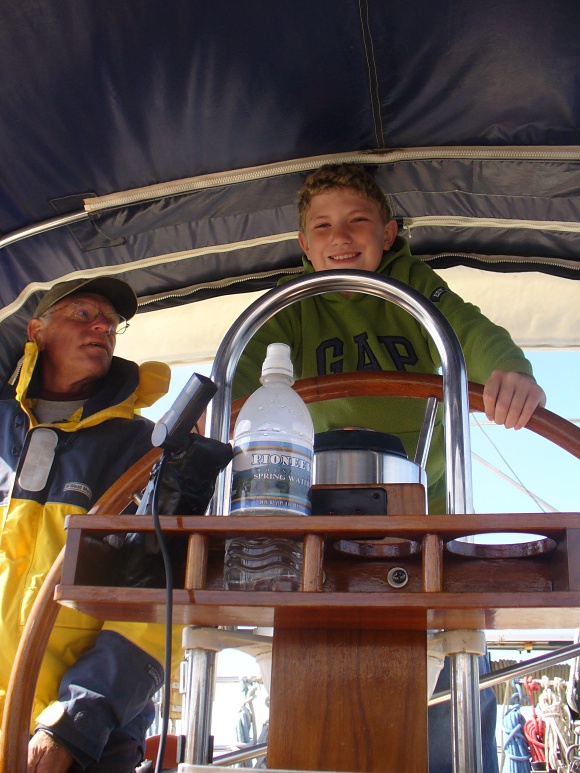7 Things to Consider Before You Sail Off into the Sunset
/If you've never lived on a boat before and you're dreaming of sailing off into the sunset, you might want to consider the realities of living on a boat full-time. There are definitely pros and cons. For us, the pros far outweigh the cons, but everyone's different. Here's just a few of things you might want to consider seriously. None of these are show stoppers … just considerations.
1. Land anchors and obligations.
If you have a house, lots of property or lots of “stuff”, it's sometimes hard to part with it and other times difficult to get rid of it. You can sell your land stuff including cars and house, but what if you don't like living on a boat? Can you get back into the market easily if everything is gone? On the other hand, do you want to pay for storage? What's the plan? Will you rent your house and if so, do you have a property manager in mind to take care of things for you? Do you have a lot of debt that will follow you?
2. Budgets and the cost of living aboard.
Do you have enough savings/income for a realistic living/cruising budget? Have you taken the time to plan out a reasonable budget to see what it will really cost to live and maintain the boat? Do you plan to work once you're aboard? That's okay if you have a trade and can work in the US, but foreign countries usually frown upon visitors working without proper paperwork. It's do-able, but it takes some effort. Planning ahead in the money department really makes sense.
3. Boats require a lot of work.
 Boats need constant maintenance. Things on a boat break ...usually at the least opportune moment. If you think that living aboard is all peaceful, calm water and watching sunsets in tropical paradises while sipping a cocktail, you're in for a big surprise. There's a lot of work involved in maintaining a boat and keeping it in seaworthy condition. The weather's not always good. The anchorages can be bumpy and crowded. There will be lots of beautiful sunsets … just not everyday and you might not see them all with your head stuck in the bilge.
Boats need constant maintenance. Things on a boat break ...usually at the least opportune moment. If you think that living aboard is all peaceful, calm water and watching sunsets in tropical paradises while sipping a cocktail, you're in for a big surprise. There's a lot of work involved in maintaining a boat and keeping it in seaworthy condition. The weather's not always good. The anchorages can be bumpy and crowded. There will be lots of beautiful sunsets … just not everyday and you might not see them all with your head stuck in the bilge.
4. Physical health.
Are you physically able to live on a boat and maintain it? If you have a chronic condition and you're only thinking of doing coastal cruising close to medical help if you need it, you'll probably be fine. There's a lot of physical exertion on a boat … heavy work sometimes. Yes, you can get help, but not if you're at sea. You really need to be pretty self-reliant. What if the windlass doesn't work? Can you haul the anchor manually if you had to. Can you climb a mast? Can you squeeze into the engine room to fix a hose or tighten a clamp? You can certainly rig a boat so that many of the physical demands are minimized. You just need to consider it in advance.
5. Family.
 Missing grandkids, close friends, kids … caring for elderly parents? It's one thing to be across town or a couple hours distance, but a long way away if you're on a boat at sea. The further away you get, the harder it is for you to come home and for them to visit. That said, many cruisers manage a half year on the boat and a half year at home or some similar arrangement.
Missing grandkids, close friends, kids … caring for elderly parents? It's one thing to be across town or a couple hours distance, but a long way away if you're on a boat at sea. The further away you get, the harder it is for you to come home and for them to visit. That said, many cruisers manage a half year on the boat and a half year at home or some similar arrangement.
6. Everybody in sync?
Is your spouse or partner in sync with your plans? We've seen so many disgruntled sailors who complain that their spouse (male & female, by the way) doesn't enjoy the cruising life and so they're both miserable. It's a different life aboard and not always easy. Reasonable expectations on both sides can make a huge difference.
7. Experience and knowledge.
The learning curve for learning to sail and handle your boat, learning all about living on a boat, and learning to maintain and repair the boat and all its systems is very, very steep. Initially, it's nearly overwhelming, but definitely do-able. Take sailing lessons. Learn about boat handling. If you can't repair something on your own, hire someone to do it, but watch over his shoulder and learn, so that next time you can do it yourself. Take Coast guard courses. Take first aid courses. Buy reference and “how-to” books. Do some bare boat charters. Join other people on their boats. Read. Join SSCA (Seven Seas Cruising Assn), attend a gam and talk to other sailors. The more you know!
Okay, all you seasoned sailors out there. I've done the short list. Can you add key considerations that new sailors might want to think about before making the leap. We're in our 14th year of cruising and we wouldn't trade our travels and experiences for the world, but there are days when ...


